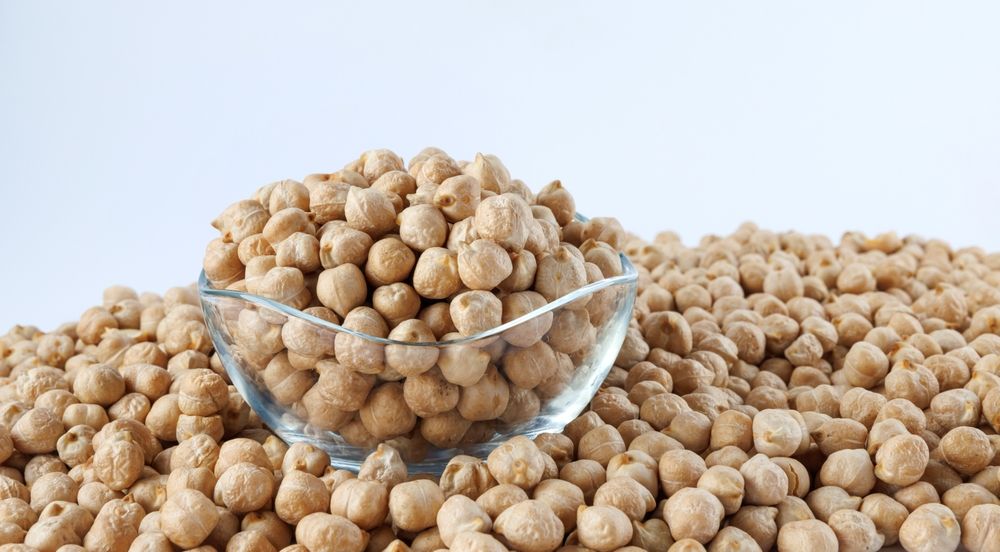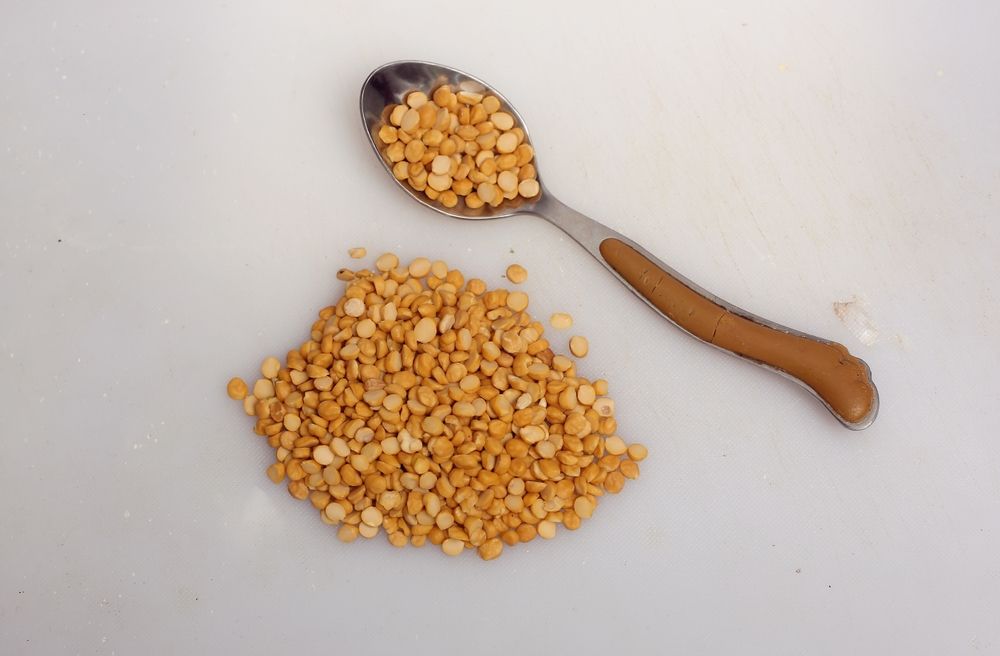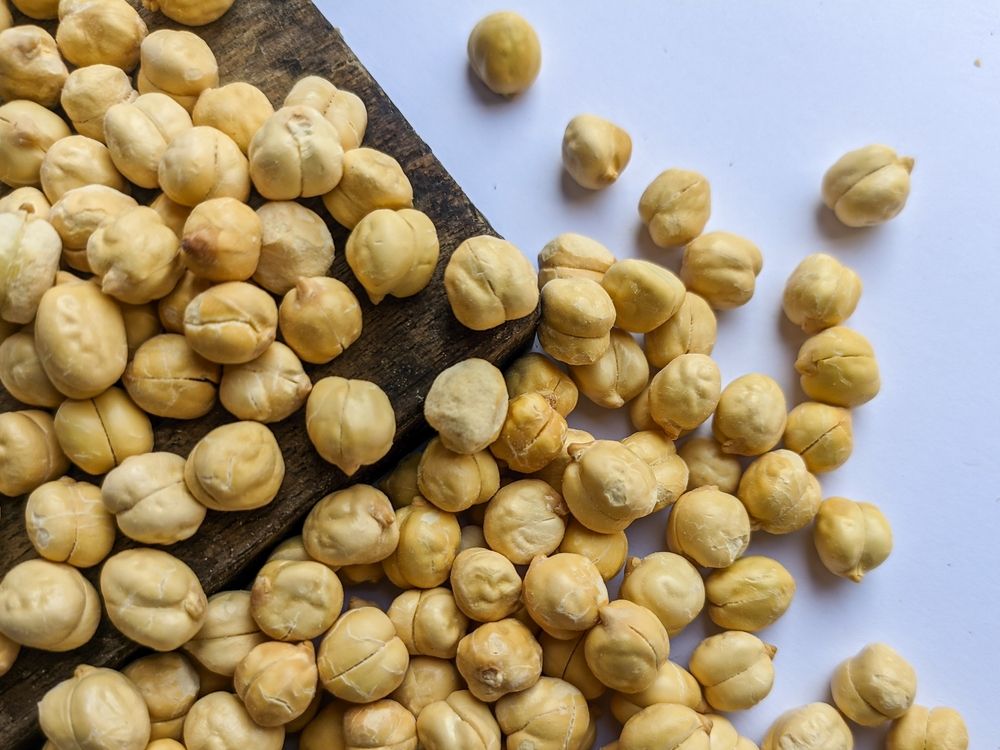
If you're a vegetarian or often eat plant-based meals, you're likely familiar with chickpeas. This protein-rich legume, part of the bean family, is a delicious ingredient in dishes like hummus, falafel, salads, and plant-based sandwiches. Chickpeas are tasty, easy to use, convenient when canned, and affordable, making them a popular choice worldwide. While there are many benefits to eating chickpeas, you might wonder if they're actually good for you from a nutritional standpoint.
The short answer is yes; for most people, chickpeas can be a nutritious addition to a balanced diet. In this article, we explore the benefits and potential side effects of including chickpeas in your diet.
Chickpeas Nutrition
In just one cup, chickpeas offer your body almost 15 grams of protein, over 12 grams of fiber, 4 grams of fat, and only 270 calories. In short, they're a powerhouse of nutrients. According to USDA FoodData Central, one cup of cooked chickpeas has:
Nutrition (Per cup, cooked):
Calories: 269
Fat: 4 g (Saturated Fat: <1 g)
Sodium: 11.5 mg
Carbs: 45 g (Fiber: 12.5 g, Sugar: 8 g)
Protein: 14.5 g
Read on to learn about the benefits of eating chickpeas and a few possible side effects. Then, check out 15 Best High-Fiber Recipes for Weight Loss.
5 Benefits of Eating Chickpeas

1) They Aid in Digestion
Fiber is a crucial component of digestion, yet many people struggle to consume enough daily. Fortunately, chickpeas are rich in fiber, especially a soluble type called raffinose. This fiber slows down digestion, as beneficial bacteria in your gut break down the raffinose. According to a study published in Nutrients, eating chickpeas may also lead to more comfortable and frequent bowel movements.
2) They Help You Feel Full
A cup of cooked chickpeas contains 12.5 grams of fiber and 14.5 grams of protein, two nutrients that work together to help you feel full and satisfied after eating. Protein takes longer to digest than other nutrients, which prolongs the feeling of fullness. Additionally, protein can reduce hunger hormones, helping to curb your appetite. Similarly, fiber increases satiety and helps regulate appetite, keeping hunger at bay.
3) They Can Help Lower Cholesterol
Managing cholesterol is vital for overall health and energy levels. High cholesterol can lead to heart disease, obesity, strokes, and other serious health issues. Chickpeas are high in fiber, which can help lower cholesterol levels and reduce the risk of cardiovascular disease.
4) They May Reduce Cancer Risk
Our bodies have impressive capabilities, from fighting disease to protecting against viruses and environmental factors. Consuming nutrient-rich foods like chickpeas can enhance these protective functions. When we eat chickpeas, our bodies produce butyrate, a short-chain fatty acid. A study in the Journal of Cancer suggests that butyrate can combat unhealthy cells. Another study indicates that this may lower the risk of colorectal cancer.
5) They Strengthen Bones
Chickpeas are rich in fiber, magnesium, and calcium, which are essential for maintaining strong, healthy bones. According to a study published in Nutrients, adequate calcium intake is crucial for bone development and maintenance, and one cup of chickpeas provides about 6% of the daily value. Additionally, research from the journal Bone shows that magnesium can help prevent bone loss, and a cup of chickpeas offers 18% of the daily value.
2 Possible Risks of Eating Chickpeas
Chickpeas are generally beneficial, but there are a couple of potential risks associated with their consumption, which will be discussed further.

1) You May Consume Too Many Calories and Fat
While chickpeas are nutritious, it's still possible to overconsume them, especially when they're part of calorie-dense dishes. Although they are a good source of protein, fiber, and other essential nutrients, chickpeas can be made into snacks and meals that are high in calories and fat. For instance, popular dishes like hummus and falafel can be calorie-rich, so it's best to enjoy them in moderation.
2) Small Risk of Botulism
Although the risk of contracting botulism from canned goods is minimal, it's still worth noting, according to the CDC. Botulism is more commonly associated with improperly canned homemade foods, where the canning process fails to eliminate harmful bacteria. This rare but serious illness can affect the nervous system. According to the USDA, canned foods that are not stored correctly can harbor this bacteria, especially in low-salt, low-oxygen, and low-sugar environments, such as those found in canned chickpeas.

